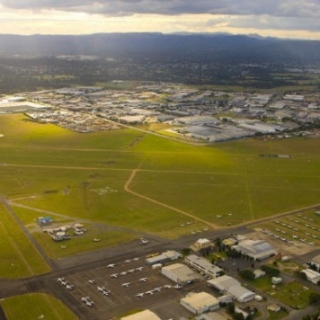
By Keith Tonkin, Managing Director
With the aviation industry recently being in the media spotlight for a range of operational and safety incidents, regional airport operators are experiencing increasing pressure to operate their airports in compliance with aviation safety, security, financial and risk management requirements while satisfying stakeholder expectations. Many of these airports are in regional areas, with operators that have limited resources and expertise, and find it hard to achieve these outcomes.
A recent decision by the NSW District Court held that the Kempsey Shire Council was liable to an aircraft owner after a rogue kangaroo collided with an aircraft. Luckily the pilot was uninjured in this incidence, yet it is concerning the Council knew that increasing kangaroo incursions were happening on the runway for at least a decade, and still failed to take any specific actions to address this risk.
The purpose of referencing this case is not to point the finger at Kempsey Shire Council but instead, to highlight the fact that Councils are becoming increasingly required to do more than simply deal with local government matters and in many cases, are now required to manage essential community infrastructure such as airports and helipads without having the necessary specialist knowledge to fulfil their legal obligations.
There is an added complication due to the growing focus on compliance with Civil Aviation Safety Regulations and Transport Security Regulations. This compliance is enforced throughout all operations, and standards must be adhered to for the airport to operate legally. These regulations are frequently amended to cope with changing aerodrome safeguarding requirements, aircraft and equipment technologies and the use of unmanned aircraft such as drones.
Many Councils also have an increasing focus on creating low financial impost on their public funds (their operational sustainability, so to speak), in order to deliver more for less or to continue to deliver what they have always delivered. In this mindset, better is a constant refrain in the cost-cutting quest for financial sustainability. Councils are likewise experiencing significant competition for capital funding which impacts on their ability to upgrade their facilities and create profitable development opportunities.
The big question that Councils need to ask themselves is, what can be done within their current scope and what additional resources are required?
The best course for local governments operating in the aviation space is to resource experts in the field who have the capabilities to assess, manage and resolve operational inefficiencies. Aviation Projects has the ability to straddle the gap between stakeholder expectations and rational financial decision making by providing cost-effective management solutions that take the worry out of owning an airport.
As experts in the aviation space, we have the capability and knowledge to take a holistic look at aviation problems and assess them from the ground up. We review the entire operation so we can support the development and implementation of cost-effective operational and strategic management programs for regional airports. Alternatively, we can provide contracted management services.
Aviation Projects can help you resolve your operational and strategic management concerns through expert opinion and evaluation. Call us today on +61 7 3371 0788.
Tags: Airport Management, Compliance, Airport Operations
